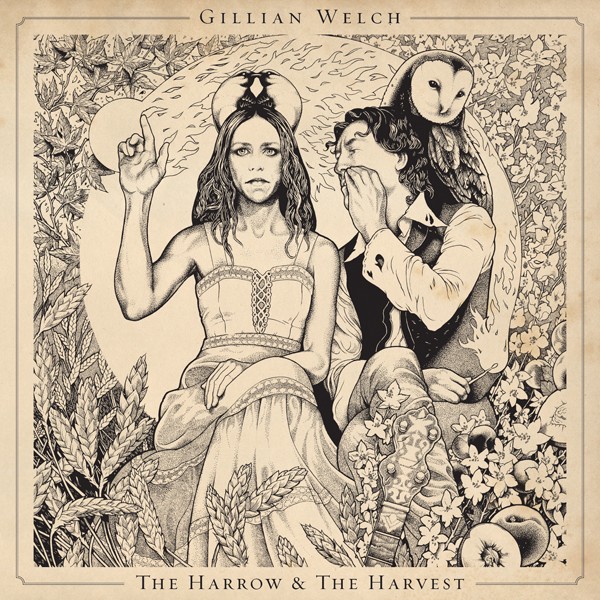“The Harrow and the Harvest”
Artist: Gillian Welch
Label: Acony Records
In this musical climate, there are plenty of bad guys. Party pop is often as thoughtful as a game of flip cup. Pop-country darlings try their best to turn Billy Joe Shaver into either Billy Gilman or Billy Graham.
In the face of all this, Gillian Welch is certainly not part of the problem.
In fact, she is everything that the above criminals of quality are not. Now in her forties and on her fifth album in collaboration with musical partner David Rawlings (their first since 2003), Welch still plays her standard dawdling, back-porch ballads in her new LP “The Harrow and the Harvest,” but that doesn’t mean she’s slowing down. Her brand of roots folk/country isn’t exactly something that is vulnerable to Father Time âÄî really nothing about it has ever been youthful.
The natural urge is to compare her to an Emmylou Harris or a Loretta Lynn, because that’s happens when a female sings well crafted, hard-nosed country. And while that comparison isn’t completely lost, it doesn’t quite do Welch justice. Sawdust-laden ballads like “That’s the Way It Goes” and “Scarlett Town” might scare Merle Haggard’s “Okie From Muskogee” and “Mama Tried” away in a bar fight. “Did you miss my gentle touch / Did I hurt you very much / That’s the Way that it Goes,” Welch sings in “That’s the Way It Goes” with a bitterness that makes the listener feel inclined to repent on behalf whatever poor bastard she is singing about.
There’s a subtle variation in her pragmatic plucking throughout the album. “Way Down in Dixie” is a highway lullaby, one of those songs that’ll put you to sleep, but not until it’s over, and then âÄî sweet dreams. “Tennessee” is similarly soothing, but with a decidedly gruffer subject matter: “It’s Beefsteak when I’m workin’ / And whiskey when I’m dry / Sweet heaven when I die.”
There’s an effortless poise about her soft-strumming demeanor. This is the album we expected out of the aging songstress âÄî a slow-moving country affair that wouldn’t sound out of place in 1941 or 2011. There’s something to be said about someone who can sing the words “1999” âÄî as Welch does in “Silver Dagger” âÄî and make it sound cool and gritty instead of lackluster and teeny-boppey. And that’s Welch’s expertise âÄî to take the best out of the old age and embed it into the new.
3.5 out of 4 stars








